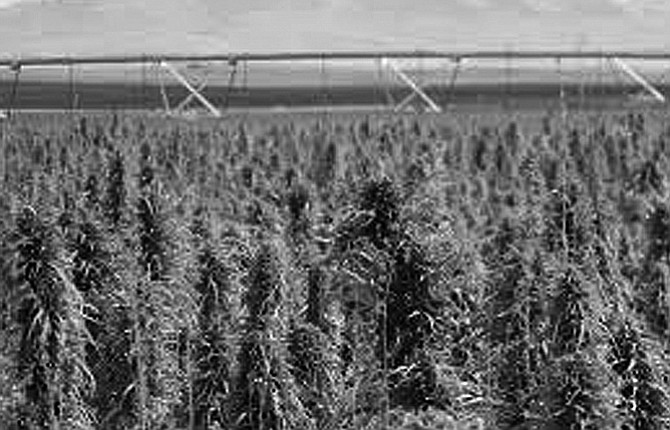Source: thedalleschronicle.com

The following editorial ran in the Corvallis Gazette-Times on Jan. 21 in regard to the economic benefits of industrial hemp farms:
#The pieces of the puzzle are starting to come together to allow Oregon’s farmers to start planting what could become their next cash crop: industrial hemp.
#It’s about time.
#In fact, it’s well past time. Now that Oregon has moved forward with medical marijuana and its voters have approved a measure allowing the use of recreational pot, it seems silly to leave industrial hemp tainted by its long-time association with the drug.
#We’re not alone in believing this. In fact, this might well be the only issue on which Oregon’s Democratic U.S. senators, Ron Wyden and Jeff Merkley, agree with their two Republican colleagues from Kentucky, Rand Paul and Mitch McConnell.
#The four senators are co-sponsoring a bill, the Industrial Hemp Farming Act of 2015, which would remove federal restrictions on the domestic cultivation of industrial hemp. The bill would remove hemp from the federal Schedule I controlled substance list — a frankly ludicrous designation in the first place — and would define it as a nondrug as long as it contained less than 0.3 percent tetrahydrocannabinol (THC). THC is the active ingredient in marijuana.
#Once you eliminate the THC, it turns out that hemp itself has a number of uses, including as a fiber. A number of farmers are positively high (sorry; couldn’t resist) on prospects for industrial hemp, including a Salem-area enthusiast who told The Oregonian that it “could save America. I am talking about everything from biodiesel fuel to food to health care products to paper. It’s endless. There are thousands of applications.”
#Some problems remain: For starters, even if you’re a farmer in one of the 20 states that has defined industrial hemp as being distinct from marijuana (the list includes Oregon and Kentucky), you still must seek a waiver from the federal Drug Enforcement Administration to grow the crop or risk raids by federal agents. You could see how the prospect of having DEA agents tromping around the back 40 might have a chilling effect. The Wyden-Merkley-Paul-McConnell bill (and, yes, it’s weird to place those names in the same sentence) would fix that.
#Another piece of the puzzle started to fall into earlier this month in Salem, where the state Agriculture Department held a public hearing on draft rules that could allow farmers to plant industrial hemp crops as early as this spring.
#The state rules aren’t perfect_- it’s not clear, for example, why the state is asking producers to pay a $1,500 fee for a three-year license — but they appear to be a solid step forward.
As it turns out, mid-valley farmers have another resource to call upon as they ponder whether to plant hemp: Oregon State University offers an online class exploring industrial hemp. (Interestingly, the class is offered through OSU’s College of Forestry as part of its Wood Science and Engineering Studies.) “Hemp is being rediscovered for the modern world,” OSU professor John Simonsen, who helped organize the class, noted in a Sunday Gazette-Times story.
#Clearing the way to plant industrial hemp in the mid-valley may not in itself be sufficient to save America, as some hemp proponents hope. But these developments do seem to be small victories for common sense, and those are rare enough to be worth celebrating.
No comments:
Post a Comment